Collective
/kəˈlektiv/(Noun): “A collective is a group of entities that share or are motivated by at least one common issue or interest, or work together to achieve a common objective.”
Whether your anxiety stems from obsessive, intrusive thoughts/doubts, a specific phobia, social situations, or life in general, living with OCD/anxiety disorders impacts our nervous systems and our bodies, not just our minds.
Increased activation of our sympathetic nervous system (fight/flight/freeze response) can cause muscle tension, headaches, body pain, difficulty with digestion/eating, difficulty with sleep/self-care, and more. Learning to regulate your nervous system and achieve a more balanced, relaxed state is inherent throughout therapy, and there are many additional services available to treat symptoms of an overactive nervous system that can complement therapy and enhance outcomes.
For this reason, I created The Collective, a multi-disciplinary network of quality, compassionate integrative health professionals that I’ve connected with who are trained in healing modalities that have been shown to complement mental health therapy and improve overall well-being. These healing methods are not cures for anxiety disorders or OCD and do not replace therapy, but are complementary and/or integrative methods that can reduce body pain/tension, reduce general anxiety and depression, increase relaxation, balance the nervous system, and improve quality of life.
Acupuncture
An ancient method dating back thousands of years that is part of Traditional Chinese Medicine in which small needles are inserted into specific areas of the body.Research shows acupuncture can improve outcomes for individuals with depressive disorders taking psychiatric medication. While more randomized controlled trials are needed, pilot studies have shown that acupuncture used as a complementary method to medication and therapy can also help to improve treatment-resistant OCD, anxiety, and sleep disturbances compared to waitlist control groups. Acupuncture has also been shown to increase parasympathetic nervous system activity, increase relaxation, improve concentration, improve immune functioning, and help individuals with chronic pain and musculoskeletal disorders.
For more information and acupuncture care, I recommend: Valerie Christina
Massage Therapy
An ancient, healing touch-based therapy.Research on direct mental health benefits of massage therapy is still in its infancy, and massage therapy has been shown to decrease pain, improve relaxation, increase activation of the parasympathetic nervous system, and improve quality of life. Massage therapy may also improve mental health therapy outcomes for individuals with anxiety and depressive disorders. Craniosacral Therapy (CST) is a specific and targeted type of massage therapy that focuses on healing touch and light adjustment of the head, skull, and sacrum; all of which play a role in our central nervous system response. CST has been shown to have a positive impact on regulating mood, regulating the nervous system, increasing relaxation, and it may help with anxiety, depression, fibromyalgia, headaches, and neck/back pain.
For more information and massage therapy, I recommend: Kata Garrison at Form & Function
Chiropractic Care
Primarily includes spinal adjustments and manipulation in a safe and effective way by a trained professional.Founded in 1895, millions of nerves, which carry messages from our brains to our bodies and back, travel down our spines. If our spine is out of alignment, which can be caused by a variety of experiences ranging from car accidents to sitting hunched over a computer all day, many functions of our bodies can be negatively impacted. Chiropractic care has been shown to improve quality of life by complementing medical treatments for individuals with chronic pain and musculoskeletal conditions including back pain, neck pain, and headaches, all of which have been shown to have negative impacts on mental health and well-being. Chiropractic care can also help with regulating the nervous system by increasing activation of the parasympathetic nervous system, which helps with relaxation.
For more information and chiropractic care, I recommend: Thrive Chiropractic and Health
Sound Healing
Music and sound have been used since the beginning of time to soothe, heal, relax, and connect.Tibetan and Buddhist cultures have used singing bowl sound healing practices for centuries, in which bowls of various sizes are tapped or rubbed with wooden mallets to produce soothing sounds. While research on singing bowl sound healing practices lacks randomized controlled trials, preliminary studies have shown that it can help decrease anxiety, depression, tension, and physical pain and can help improve heart rate variability, blood pressure, respiration, spiritual well-being, and relaxation. The exact mechanism of change in sound healing practices is unknown, but possible explanations requiring further research include alterations in brain waves, binaural beats, and vibrational sounds interacting with the human biofield, or the electrical system that runs through our bodies and extends to the energy field surrounding the human body.
For more information and sound healing, I recommend: Valerie Christina
Registered Dieticians
What we put in our bodies impacts physical and mental well-being and can impact all functions within our bodies.The Standard American Diet (SAD, fittingly, for short) often lacks the necessary nutrients that our brains and bodies need to function properly. Research shows that our gut and our brain directly impact each other in a bidirectional way. Health issues associated with the stomach are often present for those with anxiety disorders and mood disorders, and those with anxiety disorders and mood disorders often develop health issues with their stomach. Taking care of our gut health impacts immune functioning, the endocrine system, and the central nervous system. Having a healthy relationship with food can be hard for anyone, and especially for those with mental health disorders, yet what we eat is one of the most important factors in well-being.
For more information and nutrition care, I recommend Rasa Troup.
Hair Care
For Anxiety Disorders, Depression/Low Self-Esteem, and Trichotillomania/Hair-PullingTaking care of basic needs like hygiene and grooming can be really difficult for people with depressive disorders and other mental health disorders. Social anxiety, fears of feeling trapped, low self-esteem, body dysmorphia, shame from body-focused repetitive behaviors and difficulty keeping up with hygiene practices can all be barriers to sitting in a chair in front of a mirror to get a haircut. Having a compassionate stylist who is sensitive to mental health needs such as wanting a totally private session, needing a double shampoo, accommodating a haircut where you don’t have to stare in the mirror the whole time, and answering questions about self care (because you’re worth it!) can make the experience less scary and more enjoyable.
For more information and hair care, I recommend Stephenie Webber at Cura Di Sé Hair Lounge. Please Note: When booking online, please be sure to indicate in the message option if you would like to request a private session or other accommodations.
Dental Care
For those with dental phobias.Going to the dentist can be hard and scary for a variety of reasons, especially for those with mental health disorders. Anxiety disorders can lead to avoidance behaviors, teeth grinding, and TMJ, eating disorders can lead to dental erosion, and mood disorders can make self-care extremely difficult; all of which negatively impact oral health. Oral health impacts mental health in that poor dental hygiene is associated with increased social isolation, increased physical pain, lower self-esteem, and worse general well-being. Oral health has also been associated with coronary and respiratory disease, stroke, and diabetes. While therapy is necessary for those with diagnosable dental phobias, having a caring, compassionate, and understanding dentist can also help.


